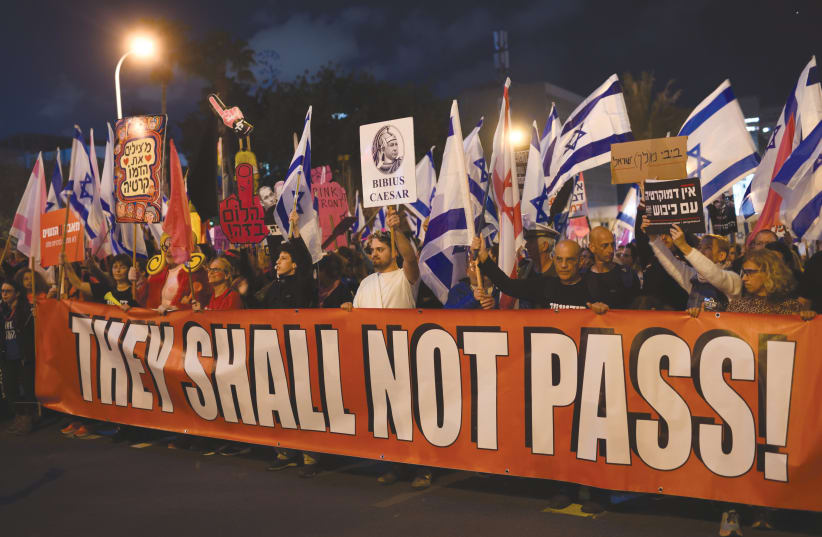The majority of people in Israel, 72%, believe that the increased internal division in Israeli society before the October 7 Hamas attacks was a factor that increased the likelihood of their occurrence, according to the consensus index done by The Menomadin Center for Jewish and Democratic Law at Bar Ilan University.
Before the October 7 attacks, there were high tensions in the country regarding issues such as Supreme Court judicial reform.
However, the index indicated that the government was the most divisive factor, while the Supreme Court was the least divisive.
A rise from last year in many areas
Additional data from the study showed that 52% of the population believed it possible to reach broad agreements between right-wing and left-wing individuals, a higher number than the 38% in the previous index.
Furthermore, 50% of the population believed it possible to reach broad agreements between religious and secular individuals, whereas in the previous index, only 39% of the population believed this to be the case.
According to the study, 71% of people in the population believed it possible to reach broad agreements between Sephardi and Ashkenazi individuals, while in the previous study, only 60% of people saw it as possible.
Furthermore, 51% of people believe it is possible to reach broad agreements on the controversy regarding the Supreme Court's status, whereas in the previous index, the number stood at 41%.

